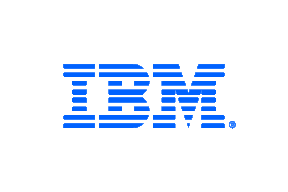Theme:
Analytics are pervasive in our lives, ranging from healthcare, transportation, finance, energy, agriculture, weather, science, and government. Analytics and systems they run on can be decades old and extraordinarily slow to change (e.g. IRS, FAA traffic control). On the other hand, they often require low-latency computing on ephemeral, real-time data, running on cutting edge hardware that rapidly changes due to the constant race for competitive advantage. These two extremes make it very difficult to insure the correctness, resilience, and security of the analytic. Security is too often an underappreciated afterthought or cost to be avoided in the full system design and operation of the analytic. The high consequence impact of ‘getting things wrong’ can be life-changing.
Hardware, software, processes, supply chain, resilience at all levels, and the enormous interdependent complexities of systems all impact system vulnerability. This complexity greatly increases the attack surface and consequently, we are in a highly asymmetric arms race between defenders and attackers (primarily well-funded state actors and criminal enterprises) in favor of the attackers.
In CLSAC 2023, we explore how to ‘get things right’ when it comes to the role of security in the analytics world. In ‘Of the Analytic’ we explore how security is addressed by the analytic itself – its architecture, design, tools, and methodologies. In ‘Security by the Analytic’ we look at analytics in the role of providing security. Lastly, in ‘For the analytic’ we review environments/tools that form the ecosystem that provides security to analytics.
Analytics are pervasive in our lives, ranging from healthcare, transportation, finance, energy, agriculture, weather, science, and government. Analytics and systems they run on can be decades old and extraordinarily slow to change (e.g. IRS, FAA traffic control). On the other hand, they often require low-latency computing on ephemeral, real-time data, running on cutting edge hardware that rapidly changes due to the constant race for competitive advantage. These two extremes make it very difficult to insure the correctness, resilience, and security of the analytic. Security is too often an underappreciated afterthought or cost to be avoided in the full system design and operation of the analytic. The high consequence impact of ‘getting things wrong’ can be life-changing.
Hardware, software, processes, supply chain, resilience at all levels, and the enormous interdependent complexities of systems all impact system vulnerability. This complexity greatly increases the attack surface and consequently, we are in a highly asymmetric arms race between defenders and attackers (primarily well-funded state actors and criminal enterprises) in favor of the attackers.
In CLSAC 2023, we explore how to ‘get things right’ when it comes to the role of security in the analytics world. In ‘Of the Analytic’ we explore how security is addressed by the analytic itself – its architecture, design, tools, and methodologies. In ‘Security by the Analytic’ we look at analytics in the role of providing security. Lastly, in ‘For the analytic’ we review environments/tools that form the ecosystem that provides security to analytics.
Organizing Committee:
Jim Ang, Pacific Northwest National Laboratory
John Feo, Pacific Northwest National Laboratory
David Haglin, Trovares, Inc.
Ron Oldfield, Sandia National Laboratories
Richard Murphy, Gem State Informatics, Inc.
Almadena Chtchelkanova, National Science Foundation
Brad Spiers, Committee Advisor
Laura Monroe, Los Alamos National Laboratory
Nick Rogers, Department of Defense
Tyler Simon, Department of Defense
Steve Pritchard, Committee Advisor
John Feo, Pacific Northwest National Laboratory
David Haglin, Trovares, Inc.
Ron Oldfield, Sandia National Laboratories
Richard Murphy, Gem State Informatics, Inc.
Almadena Chtchelkanova, National Science Foundation
Brad Spiers, Committee Advisor
Laura Monroe, Los Alamos National Laboratory
Nick Rogers, Department of Defense
Tyler Simon, Department of Defense
Steve Pritchard, Committee Advisor
Agenda -- All times EST
Monday, October 30, 2023
|
7:00 -- 8:30 pm
|
Welcome Reception and Registration
|
General Session in Capital D Ballroom
All meals in Capital A Ballroom
Receptions in Senate A/B Ballroom
All meals in Capital A Ballroom
Receptions in Senate A/B Ballroom
Tuesday, October 31, 2023
|
7:00 – 8:00 am
|
Breakfast and Registration
|
|
8:00 – 8:30 am
|
Welcome
George Cotter Award |
Jim Ang, AHSC
Candy Culhane |
|
8:30 – 9:15 am |
Keynote
|
William Regli, University of Maryland at College Park
|
|
Session 1: Security for the Analytic
|
Tyler Simon, Moderator
|
|
9:15 -- 10:00 am
|
Privacy Preserving Large Language Models
|
Antigoni Polychroniadou, JP Morgan
|
|
10:00-10:15
|
Break
|
|
10:15 -- 11:00
|
Realizing Dynamic Security Environments at Scale
|
Roberta Faux, Arqit
|
|
11:00 -- 11:45
|
Jeremy Duckworth, HPE
|
|
11:45 -- 12:30
|
Panel Discussion
|
|
12:30 -- 1:45
|
Lunch
|
|
Session 2: Hardware
|
Laura Monroe, Moderator
|
|
1:45 -- 2:30
|
Ryan Quick, Providentia Worldwide
|
|
2:30 -- 3:15
|
Composable HPC Using RISC-V: Current and Future Efforts to Construct Secure Systems for Analytics
|
John Leidel, Tactical Computing Labs
|
|
3:15 -- 3:30
|
Break
|
|
|
3:30 -- 4:15
|
The Next Hardware Revolution is Software
|
Kelly Marquardt, NextSilicon
|
|
4:15 -- 5:00
|
Panel Discussion
|
|
|
Dinner
|
|
6:00 -- 7:30
|
Timothy Mattson
|
Wednesday, November 1, 2023
|
7:00 – 8:30 am
|
Breakfast and Registration
|
|
8:30 – 9:15 am |
Keynote
|
David Robertson, Analog Devices Inc.
|
|
Session 3: Security of the Analytic
|
Jim Ang, Moderator
|
|
9:15 -- 10:00 am
|
Arun Majumdar, Permion AI
|
|
10:00-10:15
|
Break
|
|
10:15 -- 11:00
|
Jon Berry, Sandia National Laboratories
|
|
11:00 -- 11:45
|
Enhancing Security Analytics with Temporal Graphs
|
Alhamza Alnaimi, Pometry
|
|
11:45 -- 12:30
|
Panel Discussion
|
|
12:30 -- 6:00
|
Lunch and Dinner (on your own)
|
|
6:00 -- 7:30
|
Random Access
|
John Feo and Steve Pritchard, Moderators
|
|
Sign-up sheet will be at the registration table.
Talks are limited to 8 minutes. |
|
7:30 -- 9:00
|
Poster Reception
|
Students
|
|
|
Daniel DeLayo, Stony Brook University
|
|
|
Siddhartha Shankar Das, Purdue University
|
|
|
Redwan Walid, University of Maryland, BC
|
|
|
TRUCE: TRUsted Compliance Enforcement Service for Secure Data Exchange
|
Dae-young Kim, University of Maryland, BC
|
|
|
Fully Homomorphic Schemes for Real-World Usage
|
Daniel Hwang, Georgia Tech and Andrew McNamara, University of Maryland, College Park
|
Thursday, November 2, 2023
|
7:00 – 8:30 am
|
Breakfast and Registration
|
|
Keynote
|
|
8:30 – 9:15 am
|
|
|
Session 4: Security by the Analytic
|
Brad Spiers, Moderator
|
|
9:15 -- 10:00 am
|
Mahantesh Halappanavar, Pacific Northwest
National Laboratory |
|
10:00-10:15
|
Break
|
|
10:15 -- 11:00
|
Challenges and Opportunities in Securing AI
|
Yaron Singer, Robust Intelligence
|
|
11:00 -- 11:45
|
Shih-Lien (Linus) Lu, Washington State University
|
|
11:45 -- 12:30
|
Panel Discussion
|
|
12:30 -- 1:45
|
Lunch
|
|
Session 5: Policy
|
Ron Oldfield, Moderator
|
|
1:45 -- 2:30
|
Creating Trust in the Software Supply Chain
|
John Scott, Exiger
|
|
2:30 -- 3:15
|
Shoaib Mufti, Allen Institute
|
|
3:15 -- 3:30
|
Break
|
|
|
3:30 -- 4:15
|
Daniel Schiff, Purdue University
|
|
4:15 -- 5:00
|
Panel Discussion
|
|
5:00 -- 5:15
|
Closing Remarks and Adjourn
|
|
5:15 -- 6:30
|
Closing Reception
|
|
2023 Sponsors

















